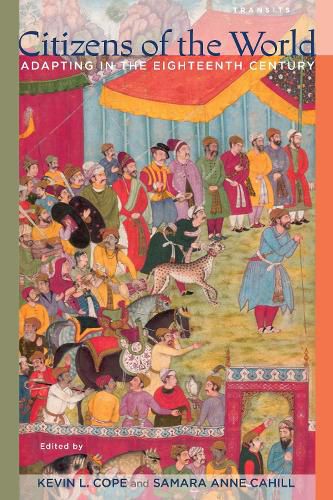Readings Newsletter
Become a Readings Member to make your shopping experience even easier.
Sign in or sign up for free!
You’re not far away from qualifying for FREE standard shipping within Australia
You’ve qualified for FREE standard shipping within Australia
The cart is loading…






Encounters, whether first or subsequent or whether cultural, economic, or ideological, mark the beginning of an acquaintance and measure both similarities and differences. What happens after an opening encounter is the topic of Citizens of the World: Adapting in the Eighteenth Century. Taking as its point of embarkation awareness of the mutuality of foreignness-of the unfamiliarity that characterizes all parties to a meeting of the minds, ways, or traditions-this exploratory volume considers the many approaches and strategies to adaptation in the Enlightenment and the long and complex process of reciprocal adjustment that created this enthusiastically outgoing era internationally. The eight essays of this volume examine four varieties of adaptation: the interdisciplinary, in which expanding realms of knowledge collide but cooperate; the transnational, in which longstanding traditions merge and hybridize; the gendered, in which personal identity and public pursuits negotiate; and the general, in which the adapting mentality energizes unprecedented efforts at ingenious recombination. Whether in cast-and-fired pottery or aboard imagined airships, adaptation, the authors in this volume demonstrate, all but defines a century in which the all but implies perpetual adjustment to everything else.
$9.00 standard shipping within Australia
FREE standard shipping within Australia for orders over $100.00
Express & International shipping calculated at checkout
Encounters, whether first or subsequent or whether cultural, economic, or ideological, mark the beginning of an acquaintance and measure both similarities and differences. What happens after an opening encounter is the topic of Citizens of the World: Adapting in the Eighteenth Century. Taking as its point of embarkation awareness of the mutuality of foreignness-of the unfamiliarity that characterizes all parties to a meeting of the minds, ways, or traditions-this exploratory volume considers the many approaches and strategies to adaptation in the Enlightenment and the long and complex process of reciprocal adjustment that created this enthusiastically outgoing era internationally. The eight essays of this volume examine four varieties of adaptation: the interdisciplinary, in which expanding realms of knowledge collide but cooperate; the transnational, in which longstanding traditions merge and hybridize; the gendered, in which personal identity and public pursuits negotiate; and the general, in which the adapting mentality energizes unprecedented efforts at ingenious recombination. Whether in cast-and-fired pottery or aboard imagined airships, adaptation, the authors in this volume demonstrate, all but defines a century in which the all but implies perpetual adjustment to everything else.